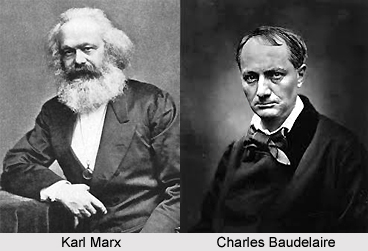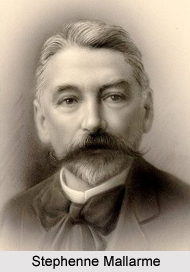 New poetry in Assamese Literature was highly influenced by the European literary strains. Poetry is impassioned writing and all writing is a way of thinking. Obviously, thinking is moulded by the dominant metaphysics of the age. Modern western literature is almost a penumbra around the dynamic ideas of Darwin, Freud, Jung and Marx. Freud, by emphasising the vital role of the unconscious and exposing the operation of repression, and Jung, by emphasising the primordial images of the collective unconscious, upheld individual sensibility and made a complete shift from the naturalistic to the surrealistic point of view. Thanks to these psychologists, poetry came to be regarded as a voice of a disembodied spirit, something akin to dream experience.
New poetry in Assamese Literature was highly influenced by the European literary strains. Poetry is impassioned writing and all writing is a way of thinking. Obviously, thinking is moulded by the dominant metaphysics of the age. Modern western literature is almost a penumbra around the dynamic ideas of Darwin, Freud, Jung and Marx. Freud, by emphasising the vital role of the unconscious and exposing the operation of repression, and Jung, by emphasising the primordial images of the collective unconscious, upheld individual sensibility and made a complete shift from the naturalistic to the surrealistic point of view. Thanks to these psychologists, poetry came to be regarded as a voice of a disembodied spirit, something akin to dream experience.
Influence of Marx on New Poetry of Assam
A considerable body of modern verse is also inspired by the gospel of Marx. This class of sociological poetry, though narrow in outlook, opens an ill-tended social parterre, about to be broken up by some colossal revolution. Assamese poetry today, particularly the poetry written by budding poets, is strewn with psychological thought and dialectical materialism. The two world wars intensified the note of individual sensibility in modern poetry. One is familiar with the mood of disillusionment and bewilderment caused by the confusion and welter of the First World War and how this is reflected in the writings of Franz Kafka, Thomas Mann, T. S. Eliot and others. The Eliotean note of disillusionment has also crept into modern Assamese poetry. There is a historical hiatus between the young poets writing today in Assamese and tradition, because they are writing more with contemporary European literature than with their own tradition in their bones.
 Marxist philosophy and egalitarian ideas have influenced another school of our poets. These poets have held up to ridicule the love, faith, culture, etc. of a decadent society. In their hope to bring about a brave new world, they have sought to make nothing of older, emaciated faiths. Some poets have altogether despaired of the entire mechanical civilization, and compared the future to death. The majority of modern poets are widely read. They have drawn copiously from the various cultures of the world. This gave them not only delight but also insight. Hence one finds in their poetry wise sayings of the East and the West, history, legend and what not. In their search for meaning, they dive deep into the literatures of the world. This has made the language of their poetry a little over laden with foreign words, phrases, and allusions, rendering it stiff and obscure for the average reader. The pre-war poets wrote chiefly about the beauty of the countryside. Rural life in all its beauty and happiness, sorrow and poverty figured in their poetry. But modern poets are town-conscious. Towns are the nerve centres of modern civilization. Here the middle-class people live and work and enjoy themselves. Some of the poets have written about the ugly side of town life - its uncouth life of sexuality and indiscipline. In their poetry is depicted the immature love of young collegians, which, to the poet, is as unrealistic as their acting on the stage. The poetic diction also has undergone revolutionary changes. The first change is the use of prose rhythms. The ordinary speech form is made to coagulate with the verse form. The difference between prose and verse is done away with. Prose constructions together with rustic words and contemporary speech-rhythms are utilised for poetic use. They believe that conventional phrases and epithets, like old coins, have passed out of currency. They have lost the power to evoke emotion or administer a shock. They can no longer convey modern sensibilities. They have discarded old epithets and metaphors. Even when they use one, they attack a new significance to it. In their search for effective words and phrases, they dive deep into world literatures. This has made the language of their poetry a little overladen with foreign words, phrases and allusions. The pictures in this modern poetry are not those of static scenery only. They are sensuous too. By a kind of friction and interchange of the different sense-feelings, an insight vouchsafed by psychological insight, a novel sense enjoyment is achieved.
Marxist philosophy and egalitarian ideas have influenced another school of our poets. These poets have held up to ridicule the love, faith, culture, etc. of a decadent society. In their hope to bring about a brave new world, they have sought to make nothing of older, emaciated faiths. Some poets have altogether despaired of the entire mechanical civilization, and compared the future to death. The majority of modern poets are widely read. They have drawn copiously from the various cultures of the world. This gave them not only delight but also insight. Hence one finds in their poetry wise sayings of the East and the West, history, legend and what not. In their search for meaning, they dive deep into the literatures of the world. This has made the language of their poetry a little over laden with foreign words, phrases, and allusions, rendering it stiff and obscure for the average reader. The pre-war poets wrote chiefly about the beauty of the countryside. Rural life in all its beauty and happiness, sorrow and poverty figured in their poetry. But modern poets are town-conscious. Towns are the nerve centres of modern civilization. Here the middle-class people live and work and enjoy themselves. Some of the poets have written about the ugly side of town life - its uncouth life of sexuality and indiscipline. In their poetry is depicted the immature love of young collegians, which, to the poet, is as unrealistic as their acting on the stage. The poetic diction also has undergone revolutionary changes. The first change is the use of prose rhythms. The ordinary speech form is made to coagulate with the verse form. The difference between prose and verse is done away with. Prose constructions together with rustic words and contemporary speech-rhythms are utilised for poetic use. They believe that conventional phrases and epithets, like old coins, have passed out of currency. They have lost the power to evoke emotion or administer a shock. They can no longer convey modern sensibilities. They have discarded old epithets and metaphors. Even when they use one, they attack a new significance to it. In their search for effective words and phrases, they dive deep into world literatures. This has made the language of their poetry a little overladen with foreign words, phrases and allusions. The pictures in this modern poetry are not those of static scenery only. They are sensuous too. By a kind of friction and interchange of the different sense-feelings, an insight vouchsafed by psychological insight, a novel sense enjoyment is achieved.
Influence of English Poetry on New Poetry of Assam
In the first quarter of the twentieth century the chief influence on Assamese poets was that of the English poetry. But after the War, the influence of the French, Russian, German, Japanese and Chinese poetry began to be discernible. In our new poetry, one notices the adoption of images, symbols and music. Like impressionist poets, their poetry is full of symbols and images, sometimes so contrasted that it is difficult to discover their natural inter-links. This may be interpreted from Hemkanta Barua`s poems. The pyramids, Hiroshima, Nagasaki of Hemkanta`s poetry are no mere names; they are the grave-yards of civilizations. They indicate moral decline. Hemkanta`s references to the figures of the epics denote more than meets the eye. The scion of the family of Santanu, Vrhannala, etc is epic names for modern eunuchs, people who are found in society today. The noted Satis (chaste women) Kunti, Shakuntala and Damayanti, have figured in a new context in his poetry and they mean things far different from those of the epics. The old mythological figures assume strange kaleidoscopic shapes in the inclined mirrors of his symbolism.



















